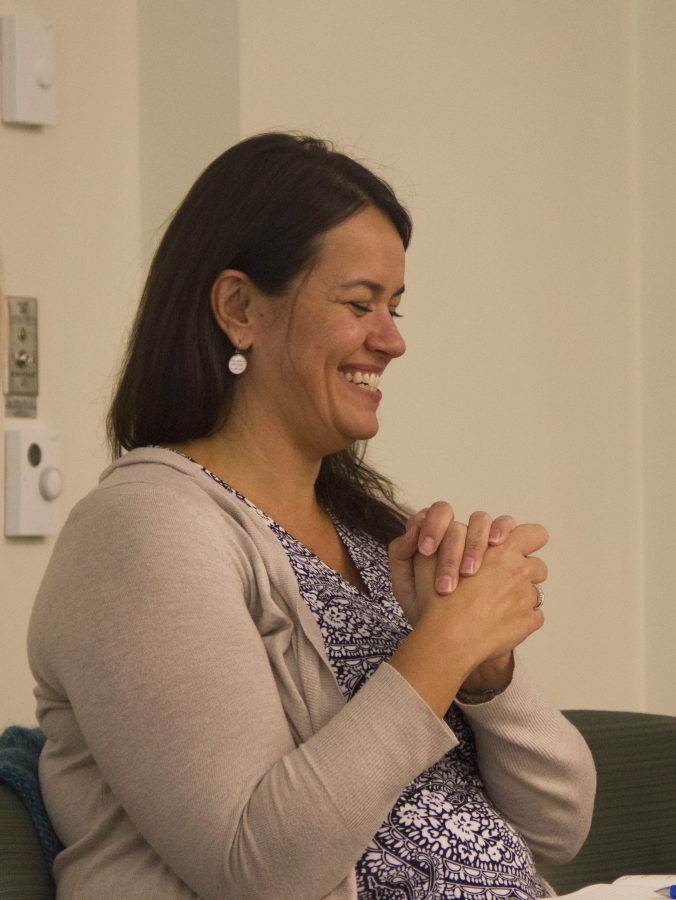On Nov. 15, the University of Massachusetts Boston’s Office of Student Leadership and Community Engagement, along with the Office of Urban and Off-Campus Support Services (U-Access), hosted a panel discussion about homelessness among youth in Boston.
The event was hosted as part of the National Hunger and Homelessness Week, and various on-campus student groups sponsored the event including the Undergraduate Student Government (USG), MASSPIRG, and UMass Boston’s Women’s Center.
Boston City Councilor Annissa Essaibi-George was among one of the panelists to speak. She is also the Chair of the City Council Committee on Homelessness and Mental Health.
Metro reported last June that 3,000 students were homeless in Boston Public Schools (BPS), and the number was expected to grow out of the 56,000 students that were then enrolled in the system. Nearly 4,000 students are currently homeless in the BPS system. According to a UMass Boston research article conducted by doctoral students, 59.5 percent of full-time UMass Boston undergraduate students receive “need-based” aid through grants and scholarships as of this year.
The university has attempted to provide on-campus support, for example, through U-Access, which regularly provides food drives for students throughout the year. Home and financial insecurity is prevalent on campus but is still a work in progress.
Essaibi-George said to The Mass Media that financially insecure students at UMass Boston should take advantage of the new dormitories that are expected to open next fall semester and the university should consider a twelve-month housing program on campus.“If you’re experiencing homelessness as a college student, what are you going to do in the summers? When you don’t have stable housing, how do you focus on your academics? How do you focus on school?” Essaibi-George said.
Essaibi-George said that the city councilor’s office has yet to talk about the issue of homeless youth in Boston directly, as strategies are being considered. “We’re trying to have a better understanding of what the current population is so we could suggest… the housing piece, with support,” Essaibi-George said.
Tina Giarla, the community organizer for the Massachusetts Coalition for the Homeless, said on the panel that “homelessness is not a choice.” Giarla spent much of her youth, from the age of eight until she was 17, without a home. Giarla shared that because she had parents who were struggling with drug addiction and were facing jail time, she frequently traveled alone and struggled to find housing and shelter as a youth.
“I rang every bell, blew every whistle on my college campus. It wasn’t helpful, there weren’t services… for young adults specifically,” Giarla said.
When The Mass Media asked how she was able to escape homelessness, she said she reached out to the coalition she now works for. “I was lucky enough to be re-introduced to a family,” she said.
Panel speaker Caitlyn Carey, who is a UMass Boston Ph.D. candidate in Public Policy, stated that the resources available to homeless youth are actually limited in Boston. Many housing shelters are organized for home-insecure families, adults, and veterans.
Nataka S. Crayton, who is currently the operations manager for the Urban Farming Institute in Roxbury, MA, was on the panel and said that she had struggled with homelessness when she was a teen. She shared that it was difficult for her to find a shelter for women. “There were some shelters for pregnant women, but I was a homeless woman,” she said. “There’s an assumption that the resources are available.”
“I’m sorry to say, if it was 70, 80 degrees outside on a regular basis, I might leave my apartment and stay outside. There are moments when I can’t afford to live,” Crayton added. She went on to say: “When we get down to real life solutions, for me to have to make a decision between paying my rent, gas, my utilities, or to put food in my stomach, that becomes very real.”
For college students who are experiencing homelessness, Giarla said in cases where there would be little hope, to “call their state legislator and, of course, the coalition.”





















































